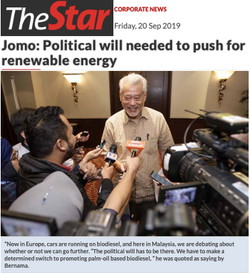- Mar 23, 2021
- 4 min read
Updated: Apr 6, 2021
Anis Chowdhury and Jomo Kwame Sundaram
SYDNEY & KUALA LUMPUR: At least 85 poor countries will not have significant access to coronavirus vaccines before 2023. Unfortunately, a year’s delay will cause an estimated 2.5 million avoidable deaths in low and lower-middle income countries. As the World Health Organization (WHO) Director-General has put it, the world is at the brink of a catastrophic moral failure.
Vaccine apartheid
The EU, US, UK, Switzerland, Canada and their allies continue to block the developing country proposal to temporarily suspend the World Trade Organization (WTO) Trade-Related Aspects of Intellectual Property Rights (TRIPS) agreement to enable greatly increased, affordable supplies of COVID-19 vaccines, drugs, tests and equipment.
Meanwhile, 6.4 billion of the 12.5 billion vaccine doses the main producers plan to produce in 2021 have already been pre-ordered, mostly by these countries, with 13% of the global population.
Thirty two European and other rich countries also have options to order more, while Australia and Canada have already secured supplies enough for five times their populations. Poor countries, often charged higher prices, simply cannot compete.
Big Pharma has also refused to join the voluntary knowledge sharing and patent pooling COVID-19 Technology Access Pool (C-TAP) initiative under WHO auspices. Thomas Cueni, International Federation of Pharmaceutical Manufacturers and Associations (IFPMA) Director General, snubbed the launch, claiming he was “too busy”.
Pfizer’s CEO dismissed C-TAP as “nonsense” and “dangerous”, while the AstraZeneca CEO insisted, “IP is a fundamental part of our industry”. Such attitudes help explain some problems of alternative vaccine distribution arrangements such as COVAX. According to its own board, there is a high chance that COVAX could fail.
Suppressing vaccine access
Despite knowing that many developing countries have much idle capacity, Cueni falsely claims the waiver “would do nothing to expand access to vaccines or to boost global manufacturing capacity”, and would jeopardise innovation and vaccine research.
Big Pharma claims manufacturing vaccines via compulsory licensing or a TRIPS waiver “would undermine innovation and raise the risk of unsafe viruses”. US Big Pharma representatives wrote to President Biden earlier this month claiming likewise.
Both Salk and Sabin made their polio vaccine discoveries patent-free, while many contemporary vaccine researchers are against Big Pharma’s greedy conduct only rewarding IP holders regardless of the varied, but crucial contributions of others.
Big Pharma’s price gouging
Vaccine companies require contract prices be kept secret. In return for discounts, the EU agreed to keep prices confidential. Nonetheless, some negotiated prices were inadvertently revealed, with a UNICEF chart listing prices from various sources.
Reputedly the cheapest vaccine available, Oxford-Astra Zeneca’s is sold to EU members for around US$2 each. Although trials were done in South Africa, it still pays more than twice as much, while Uganda, even poorer, pays over four times as much!
US negotiated bulk prices, for Moderna and Pfizer-BioNTech vaccines, are much higher, at US$15.25–19.50 per dose in several contracts, yielding 60–80% profit margins! Moderna will charge the rest of the world US$25–37 per dose.
Hypocrisy
Quite understandably, most developed countries opposing temporary TRIPS suspension have provisions in their own IP laws to suspend patent protection in the national interest and for public health emergencies.
Canada, Germany, France and others have recently strengthened their patent laws to issue compulsory licences for COVID-19 vaccines and drugs. European Council President Charles Michel announced that the EU could adopt “urgent measures” by invoking emergency provisions in its treaties.
Similarly, in the US, 28 US Code sec. 1498 (a) allows the government to make or use any invention without the patentee’s permission. To handle emergencies, the 1977 UK Patents Act (section 55) allows the government to sell a patented product, including specific drugs, medicines or medical devices, without the patentee’s consent.
When avian flu threatened early this century, the US was the only country in the world to issue compulsory licences to US manufacturers to produce Tamiflu to protect its entire population of over 300 million. The drugs were not used as the virus was not brought over either Pacific or Atlantic Oceans.
Biden must act
By helping developing countries expand vaccine manufacturing capacity and access existing capacity, US President Biden can earn much world appreciation overnight. US law and precedence enables such a unilateral initiative.
The Bayh-Dole Act allows the US government to require the owner or exclusive licensee of a patent, created with federal funding, to grant a third party a licence to an invention. Moderna received about US$2.5 billion from Operation Warp Speed, which dispensed over US$10 billion.
Moderna was founded in 2010 by university researchers with support from a venture capitalist. It has focused on mRNA technology, building on earlier work by University of Pennsylvania scientists with National Institutes for Health (NIH) funding.
The vaccine developer also used technology for previous coronavirus vaccines developed by the NIH. The NIH also provided extensive logistical support, overseeing clinical trials for tens of thousands. Moderna has already announced it will not enforce its patents during the pandemic.
Thus, POTUS has the needed leverage. The Bayh-Dole Act applies to Moderna’s vaccine, enabling the Biden administration to act independently and decisively against vaccine apartheid.
Sharing knowledge crucial
Developing countries not only need to have the right to produce vaccines, but also the requisite technical knowledge and information. Hence, the Biden administration should also support C-TAP, as recommended by Dr Anthony Fauci.
When the Medicines Patent Pool (MPP) was in similar trouble, the Obama administration came forward to put US-owned patents into the pool while encouraging drug companies to help improve developing countries’ access to medicines.
President Biden knows that early US support was critical for the MPP’s eventual success. It dramatically increased production and lowered prices of medicines for HIV, tuberculosis, hepatitis C and other infectious diseases in developing countries.





















